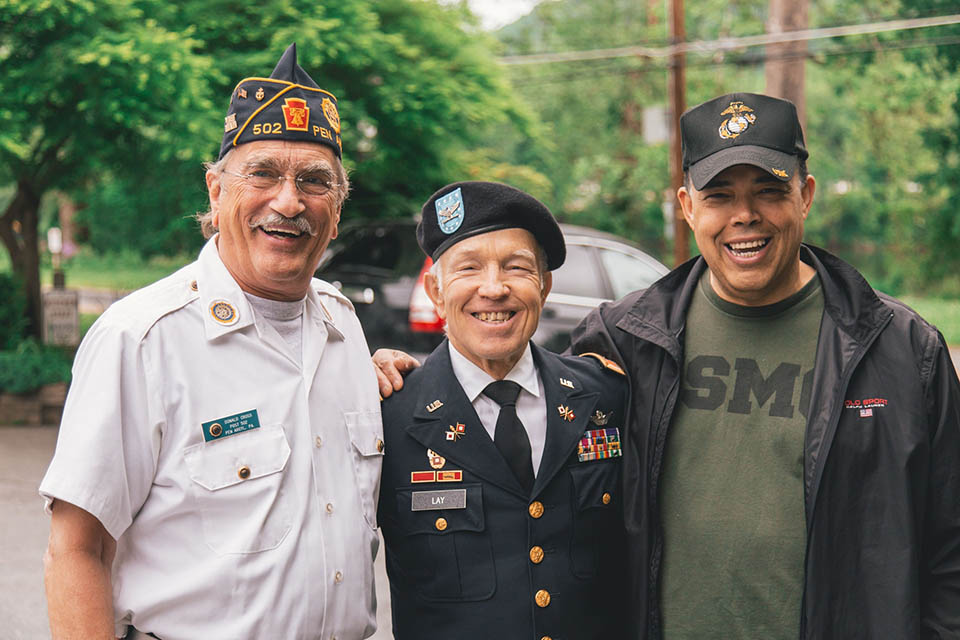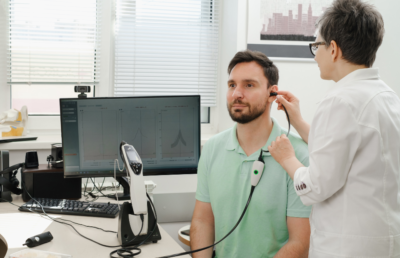Did you know that veterans are one of the most common demographics with hearing loss? According to the U.S. Department of Veterans Affairs (VA), hearing loss and tinnitus (a constant ringing or buzzing in the ear) are the most prevalent service-related injuries that veterans experience — as a result of routine exposure to loud noise in active combat or too many training exercises without proper hearing protection. Veterans almost always qualify for hearing services through the VA, which takes one of the biggest worries related to getting treatment for hearing loss off their shoulders: the cost.
With veterans, hearing loss and tinnitus can be caused by noise exposure to gunfire, tanks, bombs, or aircraft noise. To support veterans coping with hearing loss or related disorders like tinnitus, the VA offers two services: free or low-cost hearing health care like hearing aids through VA health benefits, or monthly tax-free payments through VA disability compensation. VA medical clinics provide a full range of hearing services, from diagnostic testing and counseling to implantable devices and top-of-the-line hearing aids.
Who qualifies for VA benefits?
Being a veteran with hearing loss doesn’t automatically qualify you to receive free VA hearing aids. However, if you’re a veteran who meets one or more of the below criteria, you might be able to get the hearing aids you need without paying a dime. First, you must qualify for VA health benefits. Once enrolled, you can seek out benefits for hearing tests, examinations, and hearing aids. Once approved for VA health care benefits, all veterans receive a hearing evaluation by a state-licensed audiologist to determine the need for hearing aids.
VA provides hearing aids to the following veterans:
- Those with any compensable service-connected disability
- Those who are former Prisoners of War
- Purple Heart recipients
- Those in receipt of benefits under 38 U.S.C. 1151
- Those in receipt of an increased pension based on the need for regular aid and attendance or by reason of being permanently house-bound.
- Those who have a visual or hearing impairment resulting from the existence of another medical condition for which the veteran is receiving VA care, or which resulted from treatment of that medical condition.
- Those with significant functional or cognitive impairment evidenced by deficiencies in activities of daily living, but not including normally occurring visual or hearing impairments.
- Those visually or hearing impaired so severely that the provision of sensorineural aids is necessary to permit active participation in their own medical treatment.
If you have hearing loss and are in the group of eligible veterans, you should contact your local VA medical center to see if you qualify for hearing aids. The VA will give you a hearing test and issue you top of the line hearing aids. The VA will also provide you any necessary maintenance of those hearing aids such as replacement batteries, cleaning, and adjustments.
To get approved, you must first prove that you are eligible for benefits. The VA requires that you serve on active duty, active duty for training, or inactive duty training. In addition to these, you must also prove that your hearing problems occurred while serving in the military, worsened during your service, or showed up after you ended your military service. You need to supply the VA with evidence that proves that one of these is true. Evidence might include reports of an event in your service that caused or worsened your condition, medical opinions linking your hearing loss to the event, and a current diagnosis of your condition. This doesn’t have to be too formal — basically, you need to prove that you were around loud sounds during your time in the service. This shouldn’t be very hard for anyone who underwent training, let alone active service.
You’ll be required to take a hearing test by a state-licensed audiologist to prove that your condition is service-connected. The VA requires two distinct tests: a Maryland CNC test that measures speech recognition, and a pure tone audiometric test that is used to measure the level of hearing loss. This exam is arranged through the VA system and is done by a highly qualified and specially trained audiologist.
At Chicago Hearing Services, we’re always here to help you hear better. We have several years of experience working with veterans, and we’ll not let you down. Read a review we’ve received recently from a veteran patient:
“I just want to compliment the friendly staff at Chicago Hearing Services for all your help during my appointment yesterday in your office. I want to particularly thank Emily Dudley Au.D who gave me a thorough hearing examination and made me feel so at ease. Her kindness and professionalism was so very much appreciated! Thanks again!” Jerry M.
Note that the first step towards better hearing health is always recognizing and admitting that you may be experiencing hearing loss. As 2.7 million veterans are affected by hearing loss or tinnitus — according to the U.S. Department of Veteran Affairs — it’s important to give your hearing health a thought, at least for peace of mind.
If you think you or a loved one are experiencing hearing loss or tinnitus, we encourage you to reach out to your local VA for support and guidance. Find a VA location near you. If you need any help or assistance during the process of applying for or receiving VA hearing aid benefits, remember that the National Veterans Association can help you for free.




